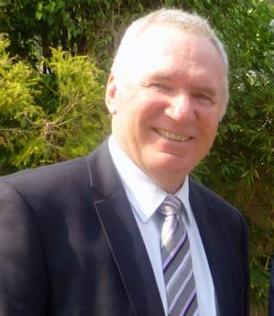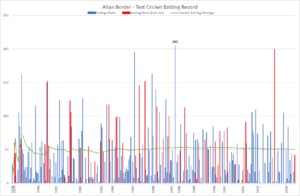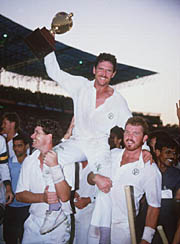Allan Border facts for kids

Border in 2014
|
||||||||||||||||||||||||||||||||||||||||||||||||||||||||||||||||||
| Personal information | ||||||||||||||||||||||||||||||||||||||||||||||||||||||||||||||||||
|---|---|---|---|---|---|---|---|---|---|---|---|---|---|---|---|---|---|---|---|---|---|---|---|---|---|---|---|---|---|---|---|---|---|---|---|---|---|---|---|---|---|---|---|---|---|---|---|---|---|---|---|---|---|---|---|---|---|---|---|---|---|---|---|---|---|---|
| Full name |
Allan Robert Border
|
|||||||||||||||||||||||||||||||||||||||||||||||||||||||||||||||||
| Born | 27 July 1955 Cremorne, New South Wales, Australia |
|||||||||||||||||||||||||||||||||||||||||||||||||||||||||||||||||
| Nickname | AB | |||||||||||||||||||||||||||||||||||||||||||||||||||||||||||||||||
| Height | 175 cm (5 ft 9 in) | |||||||||||||||||||||||||||||||||||||||||||||||||||||||||||||||||
| Batting | Left-handed | |||||||||||||||||||||||||||||||||||||||||||||||||||||||||||||||||
| Bowling | Slow left-arm orthodox | |||||||||||||||||||||||||||||||||||||||||||||||||||||||||||||||||
| Role | Middle-order batter | |||||||||||||||||||||||||||||||||||||||||||||||||||||||||||||||||
| International information | ||||||||||||||||||||||||||||||||||||||||||||||||||||||||||||||||||
| National side |
|
|||||||||||||||||||||||||||||||||||||||||||||||||||||||||||||||||
| Test debut (cap 299) | 29 December 1978 v England | |||||||||||||||||||||||||||||||||||||||||||||||||||||||||||||||||
| Last Test | 25 March 1994 v South Africa | |||||||||||||||||||||||||||||||||||||||||||||||||||||||||||||||||
| ODI debut (cap 49) | 13 January 1979 v England | |||||||||||||||||||||||||||||||||||||||||||||||||||||||||||||||||
| Last ODI | 8 April 1994 v South Africa | |||||||||||||||||||||||||||||||||||||||||||||||||||||||||||||||||
| Domestic team information | ||||||||||||||||||||||||||||||||||||||||||||||||||||||||||||||||||
| Years | Team | |||||||||||||||||||||||||||||||||||||||||||||||||||||||||||||||||
| 1976/77–1979/80 | New South Wales | |||||||||||||||||||||||||||||||||||||||||||||||||||||||||||||||||
| 1977 | Gloucestershire | |||||||||||||||||||||||||||||||||||||||||||||||||||||||||||||||||
| 1980/81–1995/96 | Queensland | |||||||||||||||||||||||||||||||||||||||||||||||||||||||||||||||||
| 1986–1988 | Essex | |||||||||||||||||||||||||||||||||||||||||||||||||||||||||||||||||
| Career statistics | ||||||||||||||||||||||||||||||||||||||||||||||||||||||||||||||||||
|
||||||||||||||||||||||||||||||||||||||||||||||||||||||||||||||||||
|
Medal record
|
||||||||||||||||||||||||||||||||||||||||||||||||||||||||||||||||||
|
Source: ESPNcricinfo, 13 January 2008
|
||||||||||||||||||||||||||||||||||||||||||||||||||||||||||||||||||
Allan Robert Border (born 27 July 1955) is a famous Australian cricket player and commentator. He was a left-handed batsman and sometimes bowled slow left-arm spin. "A.B." was his nickname. He was the captain of the Australian team for many years. He led Australia to win their first Cricket World Cup in 1987.
Allan Border played 156 Test matches, which was a world record for a long time. He also held the record for playing 153 Tests in a row. He scored 11,174 runs in Test cricket, which was also a world record until 2006. He hit 27 centuries in his Test career. He retired as Australia's top run-scorer in both Tests and One Day Internationals (ODIs).
He was one of the first 55 players to be inducted into the ICC Cricket Hall of Fame. In 2009, he was named one of Queensland's "sports legends." He also received the Queensland Greats Award in 2016.
Contents
Early Life and Cricket Beginnings
Allan Border was born in Cremorne, a suburb of Sydney, New South Wales. He grew up with his three brothers in Mosman. His father was a wool classer, and his mother ran a corner store. They had a big backyard for games, and the local cricket ground was right across the street.
Allan went to North Sydney Boys High School. He played cricket with teams two or three years older than him. He also played baseball, which helped him improve his fielding and hitting skills. At 16, he started playing for Mosman in Sydney Grade Cricket. He began as a left-arm spin bowler and batted lower down the order.
Starting His Cricket Career
In 1975–76, Border scored over 600 runs in grade cricket. The next season, he hit two centuries in a row, which helped him get selected for the New South Wales team. He made his first-class debut in January 1977 against Queensland. He scored 36 runs and helped his team win.
He then spent time in England playing for local clubs. In 1977–78, he scored 617 runs in Australia's Sheffield Shield competition. He returned to England in 1978 and had a great season, scoring 1191 runs and taking 54 wickets.
Test Debut During a Big Change
In 1977, many top players joined a new professional cricket league called World Series Cricket (WSC). This meant they couldn't play for Australia, leaving many spots open. Allan Border started the 1978–79 season with his first century in first-class cricket. He scored 135 runs against Western Australia.
After Australia lost the first two Tests against England, Border was chosen for his Test debut in December 1978. He was nervous at first but scored 29 runs. In the next Test, he was the top scorer in both innings, with 60 not out and 45 not out. He was briefly dropped for one Test, but this was the only Test he missed in his entire career. He then played in Australia's next 153 Tests in a row!
He returned to the team for the First Test against Pakistan. He scored his first Test century, 105 runs. In his second Test series, he was the top batsman, scoring 276 runs at an average of 92.00.
Returning to the Australian Team
In May 1979, the Australian cricket board made a deal with WSC. This allowed the WSC players to return to international cricket. Before they came back, Australia toured England for the 1979 Cricket World Cup and then India for a six-Test series.
On the tour of India, Allan Border scored 521 runs. He made 162 runs in the First Test, showing great skill against the Indian spin bowlers. Because of his strong performances, he was one of only three players who kept their spots when the WSC players returned. He scored 115 runs in a Test against England, helping Australia win. He reached 1,000 Test runs in just 354 days, faster than any Australian before him.
On a tour of Pakistan, Border made history by scoring 150 not out and 153 runs in the same Test match. He was the first batsman ever to score over 150 in both innings of a Test. He then moved to Brisbane to play for Queensland.
Showing Great Determination
In 1981, Allan Border went on his first Ashes tour to England. He scored half-centuries in the first two Tests. In one match, he batted with a broken finger and scored 123 not out. This was the slowest Test century by an Australian, but it showed his incredible determination. He scored 533 runs in the series. Because of his strong play, he was named one of the Wisden Cricketers of the Year in 1982.
His form was mixed in the 1981–82 season. He struggled against Pakistan but played well against the West Indies, scoring a century and three half-centuries.
In the 1982–83 Ashes series, Australia was leading 2–0. In the Fourth Test, Australia needed 74 runs to win with only one wicket left. Border, batting at number 6, was joined by Jeff Thomson. They almost won the match, but Thomson was out when Australia needed just three more runs. Border was left on 62 not out. This innings is still remembered as one of his most determined efforts.
A New Era for Australian Cricket
In 1983–84, Australia hosted Pakistan and won the series easily. Border scored 118 and 117 not out in two Tests. At the end of the season, several key Australian players retired, including Rod Marsh, Dennis Lillee, and Greg Chappell. This left the team with less experience.
Allan Border, who was already captain of Queensland, became the Australian vice-captain for a tour of the West Indies in 1984. In the Second Test in Trinidad, Australia was in trouble. Border scored 98 not out in the first innings. In the second innings, he batted for over 10 hours and scored 100 not out, helping Australia achieve an amazing draw. He showed he was the one player who could stand up to the strong West Indies team. He finished the series with 521 runs, twice as many as any other Australian.
Becoming Captain
After heavy losses to the West Indies in 1984–85, the Australian captain, Kim Hughes, resigned. Allan Border took over as captain for the Third Test. He didn't have much captaincy experience and wasn't keen on the job at first. Australia lost that Test, their sixth straight defeat to the West Indies. However, Border then led the team to a draw and a win in the final two Tests.
In April 1985, some Australian players decided to tour South Africa, which was against international rules at the time. Seven players who were supposed to go on the 1985 Ashes tour to England joined this "rebel" team instead. This upset Border deeply.
Australia lost the Ashes series 3–1 to England. However, Border was outstanding, scoring 196 runs in one Test and 146 not out in another. He scored 597 runs in the series, making him easily Australia's best batsman.
Australia continued to struggle in 1985–86, losing a Test series to New Zealand for the first time. Border scored 152 not out in one match. Against India, he scored 163 not out, helping Australia draw a Test. He was frustrated by the team's poor performances. After another loss, he even threatened to quit as captain if things didn't improve.
Working with a Coach
The Australian cricket board realized Border needed more support. They decided to appoint a permanent coach. Former Australian captain Bob Simpson took the job. His first tour with the team was to India in 1986.
In the First Test in India, Border scored 106 runs, and the match ended in a historic tie, only the second in cricket history. The 1986–87 season brought another Ashes series loss to England. Despite Border's centuries, Australia had won only two of their last 22 Tests.
1987 World Cup Victory
Australia's unexpected victory in the 1987 Cricket World Cup was a major turning point. It marked the start of better times for the team. In 1987–88, Australia defeated New Zealand, their first Test series win in four years. Border scored 205 runs in one Test, his highest Test score ever. This also made him Australia's highest run-scorer, passing Greg Chappell.
Winning overseas was still difficult. Australia lost a series in Pakistan in 1988. Border scored 230 runs, including one century.
A Stronger Captaincy
In 1988–89, Australia again lost a Test series to the West Indies. Border's own batting form suffered. However, he had an amazing performance in the Fourth Test in Sydney. He celebrated playing his 100th Test by taking 7 wickets for 46 runs and 4 wickets for 50 runs. He also scored 75 runs in that match, helping Australia win their only game in the series. His bowling figures were the best by an Australian captain.
The 1989 Ashes tour was Border's first big series win as Test captain. He decided to be more aggressive as captain. Australia won the series 4–0, their best result in England since 1948. Border scored 442 runs in the series, with six half-centuries. He was named the 1989 Australian of the Year for leading Australia to regain the Ashes.
Australia continued to play well, going undefeated at home for the first time in six years during the 1989–90 season. They also won the 1990–91 Ashes series against England 3–0.
Challenges and Records
In 1991, Australia toured the Caribbean, hoping to beat the West Indies. However, they lost the series 2–1. In 1991–92, Australia defeated India 4–0. Border maintained his consistent batting, scoring 275 runs.
Australia was a favorite for the 1992 Cricket World Cup but was knocked out in the group stage. On the 1992 tour of Sri Lanka, Border scored 106 runs in one Test, ending a four-year period without a century.
In 1992–93, the West Indies toured Australia. In the Second Test, Border scored 110 runs. In the Third Test, his innings of 74 runs made him the second player ever to pass 10,000 Test runs. The Fourth Test was incredibly close, with Australia losing by just one run. This loss was very frustrating for Border.
Final Seasons and Retirement
In 1993, Border became the first player since Joe Darling to lead Australia on three Ashes tours in England. Australia won the series 4–1. Border scored 200 not out in one Test. He scored 533 runs in the series. Later in 1993, Australia beat New Zealand 2–0. Border scored 105 runs in the Third Test in Brisbane, which was his last of 27 Test centuries.
Allan Border ended his career by leading the first Australian team to play a Test series against South Africa in 1994, after South Africa returned to international cricket. Both series ended in a 1–1 draw. Border's final Test innings was a determined 42 not out, helping Australia draw a match in Durban.
Playing Style and Legacy
Allan Border was known for his tough and determined playing style rather than being flashy. He was a strong attacker and was considered one of Australia's best players against spin bowling in 50 years. He was also a good bowler and an excellent fielder, especially in the slips.
Even when his team struggled, Border's individual batting average remained consistently high. He left the Australian team in a strong position for his successor, Mark Taylor, who went on to lead Australia to become the best team in the world. Border's biggest regret as captain was not being able to beat the West Indies.
Many people believe Border helped rebuild Australian cricket during a difficult time. He showed great spirit and leadership.
World Records and Achievements
Allan Border set several world records during his career:
- He was the first player to score over 150 runs in both innings of a Test match (150 not out and 153).
- He was the first to play 150 Test matches.
- He was the first to score 11,000 Test runs.
- He held the record for most runs in a Test career (11,174 runs) until 2005.
- He held the record for most Test matches played (156) and most consecutive Test matches played (153).
- He batted in more Test innings (265) than any other player for a time.
- He had the most Test scores between 50 and 100 (63) and most scores of at least 50 (90).
- He captained in 93 Tests, all in a row, which was a world record.
- He scored the most Test runs as captain (6,623).
- He was the most capped Australian player in Tests and ODIs for a period.
- He held the record for most Test catches by a non-wicket-keeper (156).
- He is the only player to have scored 100 in each innings of a Test and taken 10 wickets in a match over their career.
He was named a Wisden Cricketer of the Year in 1982.
After Retirement
After retiring from international cricket, Border continued to play first-class cricket. In 1994–95, he was part of the Queensland team that won the Sheffield Shield for the first time.
He served as an Australian selector from 1998 to 2005, and again briefly in 2006. The annual award for Australia's best cricketer is now called the Allan Border Medal. The Test series between India and Australia is named the Border–Gavaskar Trophy in his honor.
Two cricket grounds have been renamed after him:
- The oval in Mosman, where he played as a child, is now called the Allan Border Oval.
- The Neumann Oval in Brisbane was renamed Allan Border Field.
Border wrote an autobiography called Beyond Ten Thousand: My Life Story in 1993. In 2000, he was inducted into the Australian Cricket Hall of Fame. He was also named the twelfth man in Australia's "Greatest ever ODI Team."
He received several honors, including being made an Officer of the Order of Australia (AO) in 1989. He was inducted into the Sport Australia Hall of Fame in 1990 and named Queenslander of the Year in 1994. In 2021, he was named an Australia Post Legend of Cricket.
In 2009, Border was inducted into the Queensland Sport Hall of Fame. A bronze statue of him was unveiled at The Gabba cricket ground in 2021. As of 2018, Border works as a commentator for Fox Sports Australia. In 2023, he shared that he was diagnosed with Parkinson's disease in 2016.
 | Janet Taylor Pickett |
 | Synthia Saint James |
 | Howardena Pindell |
 | Faith Ringgold |



